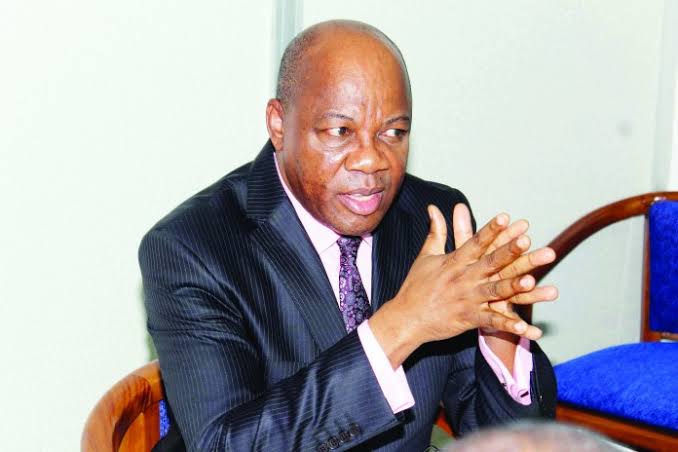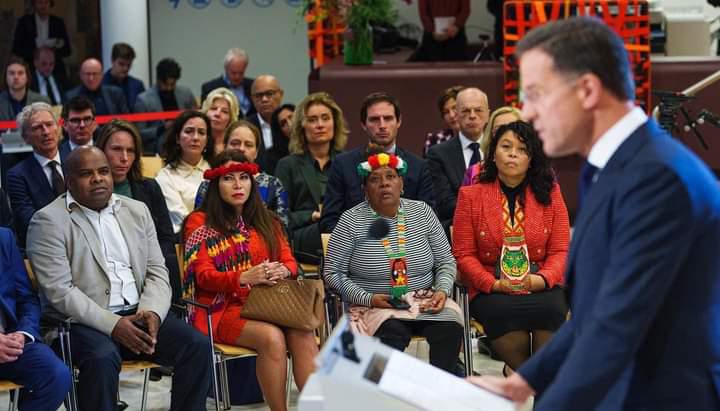The Economic and Financial Crimes Commission (EFCC) says the views of Olisa Agbakoba, a senior advocate of Nigeria (SAN), on the probe on the finances of Kogi state are erroneous.
Wilson Uwujaren, the commission’s spokesperson, said this in a statement on Monday.
THE KOGI PROBE
On December 15, the commission arraigned Ali Bello, identified as a nephew of Yahaya Bello, governor of Kogi, and one Dauda Suleiman on a 10-count charge bordering on alleged misappropriation and money laundering.
Advertisement
The anti-graft body claimed the duo, alongside one Abdulsalami Hudu, a cashier at the Kogi state house who is now at large, withdrew N10.2 billion from the state’s treasury for personal use.
AGBAKOBA COUNTERS EFCC
Reacting to the development on Monday, Agbakoba said the EFCC has no constitutional right to probe how a state spends its money, adding that only the Independent Corrupt Practices and Other Related Offences Commission (ICPC) and state assemblies have the responsibility to probe state expenditure.
Advertisement
The former chairman of the Nigerian Bar Association (NBA), who also cited a recent supreme court judgment, said if the EFCC wants to expand the scope of its functions, “they must go to the national assembly to do so”.
EFCC RESPONDS TO AGBAKOBA
In the EFCC statement, Uwujaren said Agbakoba is casting aspersion on the commission’s commitment to tackling corruption.
“The commission takes great exception to the indecorous and utterly irresponsible attempt by Agbakoba to dress it in the borrowed garb of a lawless entity and a meddlesome interloper, who has no business probing the stealing of Kogi state resources,” the statement reads.
Advertisement
“In all his tirades, no evidence was presented to support his claim that the EFCC has been lawless, nor did he mention any law which the commission’s investigation of the finances of the Kogi state government violated.
“Instead, his refrain was to a non-extent decision of the supreme court which he also failed to elaborate upon. But it is important to state that contrary to the views of Agbakoba, the supreme court at no time delivered any judgment which forbids the EFCC from investigating fraud cases involving a state government.
“The learned counsel ought to have known that the apex court of the land as far back as 2010 in Jolly Tevoru Nyame V FRN (2010) 11 NWLR (PT.1193)344 held that the “claim that the money belongs to Taraba state and that the state has exclusive claim on it to the exclusion of any other authority by virtue of section 120 of the 1999 constitution cannot stand.”
“Furthermore, Agbakoba’s erroneous views ought to be tempered by the decision of the supreme court in A.G Ondo state v. A.G., federation (2002) 9 NWLR [pt.772] page 222 at page 308 where the honourable court held: ‘It has been pointed out that the provisions of the act impinge on the cardinal principle of federalism, namely, the requirement of equality and autonomy of the state government and non-interference with the functions of state government.’
Advertisement
“This is true, but as seen above, both the federal and state government share the power to legislate in order to abolish corruption and abuse of office. If this is a breach of the principle of federalism, then, I am afraid, it is the constitution that makes the provisions that have facilitated the breach of the principle.
“As far as the aberration is supported by the provision of the constitution, I think it cannot rightly be argued that an illegality has occurred by the failure of the constitution to adhere to the cardinal principles which are at best ideals to follow or guidance for an ideal situation.
Advertisement
“Lastly, the learned silk should also know that his views are totally unsupported by the facts, circumstances of Kogi’s case and the decision of the court of appeal in Kalu V FRN & (2012) LPELR- 9287 (CA) which decision knocked the bottom out of the contention of Agbakoba.
“From the decisions of the appellate court it is clear that whilst the state assemblies can investigate finances of their states, they are not empowered to investigate and prosecute fraud cases; that responsibility lies with agencies such as the EFCC.
Advertisement
“It is therefore morally reprehensible for a learned silk of Agbakoba’s calibre to promote the view that state governments cannot be questioned on how they use the resources of their states, and that law enforcement organizations cannot investigate cases of alleged wanton theft of Kogi state’s resources particularly where the alleged thieves do not report themselves!”
Advertisement
Add a comment







